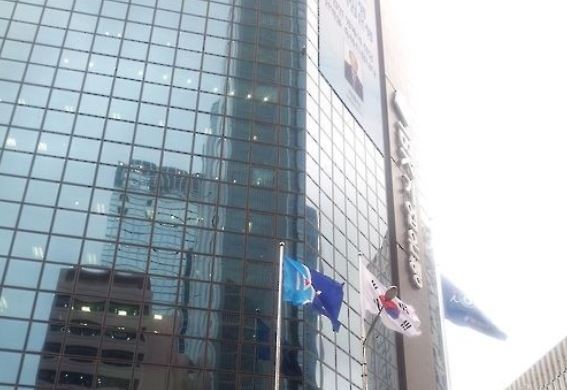IBK institute cites greater economic uncertainties for 2018
By YonhapPublished : Nov. 6, 2017 - 09:55
South Korea's economy will stay on a recovery track next year but will contend with greater uncertainties due to uncontrollable variables, a think tank under state-owned Industrial Bank of Korea said Monday.
The IBK Economic Research Institute estimated next year's economic growth at 2.8 percent, lower than the 3 percent being forecast by the government and the central bank but close to projections by other private economic institutes.
Steps taken by the government to increase household income, including a higher minimum wage and increased welfare benefits, will help raise private spending by 2.6 percent next year from this year's 2.3 percent, the institute said in its report.

Facility investment, however, will more than halve to 5.1 percent from 12.8 percent, with investment stunted across the board except in IT and petrochemical industries, according to the report. Investment in the construction sector will fall to 5.6 percent from 8.3 percent due to government budget cuts in building social infrastructure, and export growth will also backtrack to 4.1 percent from 10.9 percent, as trade restrictions may take their toll on shipments. In addition, risks posed by North Korea's nuclear provocations and the base effect could bring down growth, it said.
Overall, next year will be one of uncertainties because of uncontrollable conditions, such as renegotiation of the Korea-US free trade agreement, growing US trade protectionism, potential tensions between China and the US, Korea's household debt and a slump in the local construction market, the report said.
By industry, the semiconductor sector was predicted to continue booming. Petrochemicals, displays, steel and smartphones were rated as promising, but construction, retail and wholesale and autos were judged likely to be in negative territory. Shipbuilding and shipping were assessed to remain in a poor condition.
The report saw polarization in small and medium-sized enterprises. While they can borrow more from banks as lenders limit their household loans, the banks are likely to lend to already sound SMEs, widening the capital resources gap between the strong and the weak. The production increase by SMEs would be limited, as the auto and construction sectors remain dull and face external risks, it said. (Yonhap)








![[Graphic News] More Koreans say they plan long-distance trips this year](http://res.heraldm.com/phpwas/restmb_idxmake.php?idx=644&simg=/content/image/2024/04/17/20240417050828_0.gif&u=)
![[KH Explains] Hyundai's full hybrid edge to pay off amid slow transition to pure EVs](http://res.heraldm.com/phpwas/restmb_idxmake.php?idx=644&simg=/content/image/2024/04/18/20240418050645_0.jpg&u=20240419100350)






![[From the Scene] Monks, Buddhists hail return of remains of Buddhas](http://res.heraldm.com/phpwas/restmb_idxmake.php?idx=652&simg=/content/image/2024/04/19/20240419050617_0.jpg&u=20240419175937)

![[KH Explains] Hyundai's full hybrid edge to pay off amid slow transition to pure EVs](http://res.heraldm.com/phpwas/restmb_idxmake.php?idx=652&simg=/content/image/2024/04/18/20240418050645_0.jpg&u=20240419100350)

![[Today’s K-pop] Illit drops debut single remix](http://res.heraldm.com/phpwas/restmb_idxmake.php?idx=642&simg=/content/image/2024/04/19/20240419050612_0.jpg&u=)